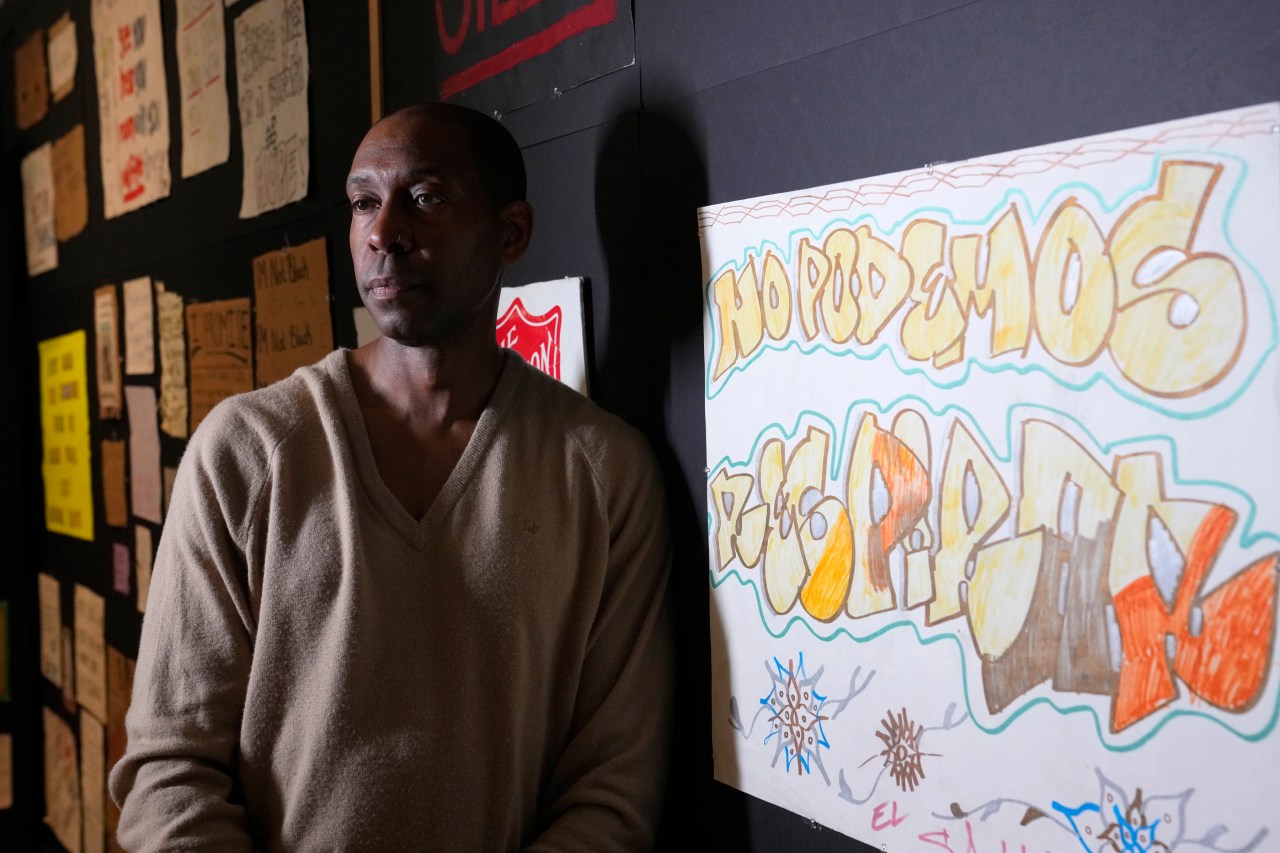Arkansas
Finding meaning in George Floyd’s death through protest art left at his murder site


PHOENIX (AP) — For months after George Floyd was killed by police in May 2020, people from around the world traveled to the site of his murder in Minneapolis and left signs, paintings and poems to memorialize the man whose death reignited a movement against systemic racism.
Now hundreds of those artifacts are on display for the first time outside of Minnesota, giving viewers elsewhere the chance to engage with the emotionally raw protest art and mourn Floyd, as well as other Black Americans killed by police.
“It’s different than seeing it on TV,” said Leah Hall of Phoenix, who brought her two young children to the exhibit that opened this month at the Arizona State University Art Museum. “It’s an important part of history that they are not learning in school,” said Hall, adding that she wasn’t able to fly to Minneapolis to honor Floyd’s life.
“Twin Flames: The George Floyd Uprising from Minneapolis to Phoenix” features about 500 artifacts that protesters and mourners left at the intersection of 38th Street and Chicago Avenue, where Floyd was killed. It is the largest collection of work from the intersection that has been on public display.
Paintings of Floyd and poems about him written on poster boards stand on easels throughout the exhibit. Signs made with paper plates and reused cardboard that say “Justice 4 Floyd” and “Enough is Enough” cover the walls.
The heavy themes of the words and images on display are contrasted by arrangements of fake flowers and flickering, battery-powered, white candles evoking the vigil held in Minneapolis after his death.
What’s on display in Phoenix is just a fraction of the thousands of artifacts under the care of the George Floyd Global Memorial, an organization that also tends to the living memorial at the intersection where he died and which remains closed off to traffic.
Many of the artifacts appear to have been written or drawn in a hurry. This conveys the urgency with which people felt the need to express their anger and grief after watching eyewitness video that captured the moment before he died, said Jeanelle Austin, director of the George Floyd Global Memorial.
Some recent visitors to the exhibit were moved to tears.
The organizers of the exhibit say their goal was to create a space for understanding and civil discourse, and potentially stimulate collective action against police violence and other systemic inequities in the U.S.
“We have always engaged with social and political work at the museum. Throughout time, art and protest have been side by side, and this (exhibit) really aligns with our mission to center creativity in art in the service of social good,” said Brittany Corrales, a curator at the museum who helped facilitate those organizing the exhibit.
The organizers also see the exhibit as an opportunity to examine the history of museums in America overlooking the inequities faced by Black Americans and other marginalized communities.
“To bring this here to the Phoenix metropolitan area, to Arizona State University, is significant because there is a history of police violence that is here that dates back to the early part of the 20th century,” said Rashad Shabazz, a university professor and board member at ASU’s Center for Work and Democracy, which funded the exhibit and brought the artifacts to Arizona.
The exhibit draws direct parallels between Minneapolis and Phoenix, where a Black man named Dion Johnson was fatally shot by an Arizona state trooper the same day that Floyd was murdered. The George Floyd Global Memorial is hopeful of bringing the exhibit to other cities after it leaves Phoenix in July, but there are no plans yet.
One Phoenix resident who visited the exhibit last week said it would resonate far beyond the United States. “This is not just an American problem,” said Charm Abella, who was living in Spain in 2020 and remembers protests reaching around the world.
Other museums around the country are also delving into themes explored at the ASU Art Museum.
In Louisville, Kentucky, the Speed Art Museum last year honored the life of Breonna Taylor, who was killed by police officers there after they illegally entered her apartment in March 2020. The exhibit, the second at the museum to focus on Taylor’s life, prominently displayed a portrait of Taylor created by Amy Sherald, the artist who painted the portrait of Michelle Obama for the National Portrait Gallery in Washington, D.C.
The exhibit spoke to the idea that Black artists could use portraits to spark conversation and potentially action, said Raphaela Platow, the museum’s director. “What’s important for us is that we continue having ongoing conversations about the issues that we are facing as a community, from police violence to racial segregation to systemic oppression,” Platow said.
Previous art exhibits in Arizona that were critical of police officers drew local condemnation.
An art exhibit at the Mesa Arts Center in Arizona drew concern from the city in September for planning to showcase signs against police violence that could be considered offensive to city employees because of explicit language.
But the organizers of “Twin Flames” stressed the importance of confronting hard truths. “Our purpose is to be able to create spaces that remind people that the work is not over,” said Austin, the director of the George Floyd Global Memorial.
Family members of Floyd who visited the exhibit last week were deeply moved.
Floyd’s aunt, Angela Harrelson, who traveled from Minneapolis, said that upon entering the museum she felt “overwhelmed, but in a good way.”
“I saw all the art that people meticulously cared for and took the time to place,” she said. “It was concentrated with so much love and passion.”













You must be logged in to post a comment Login